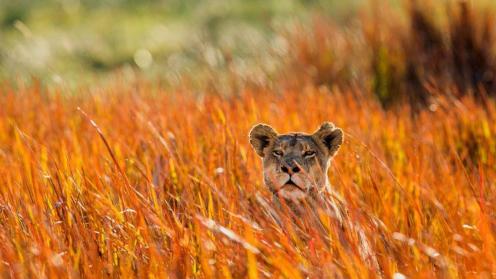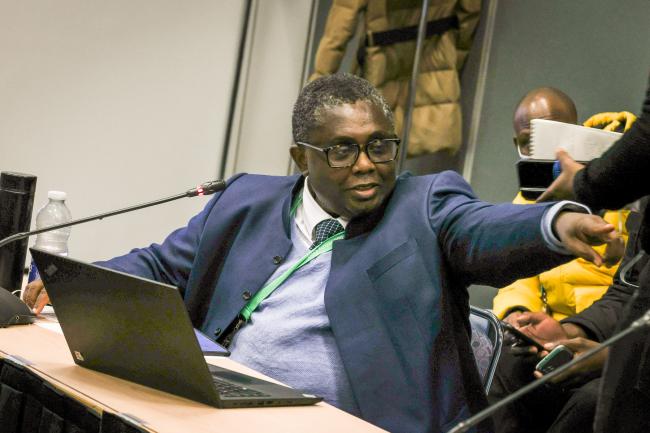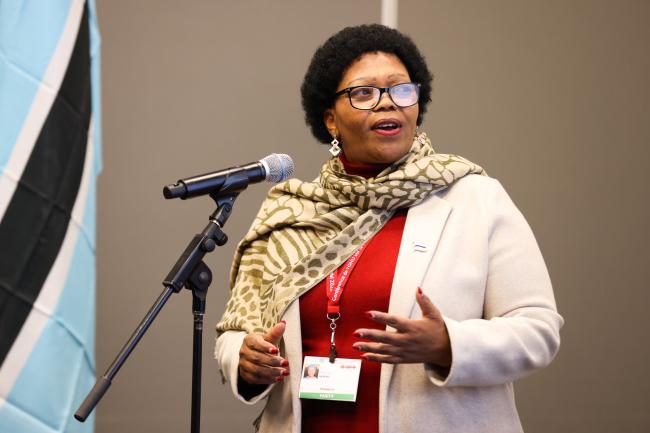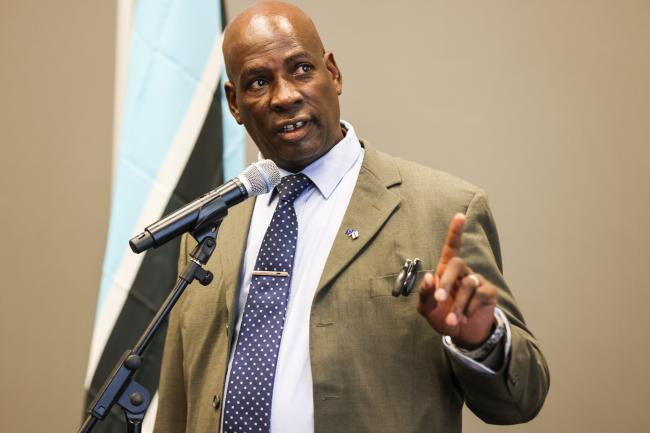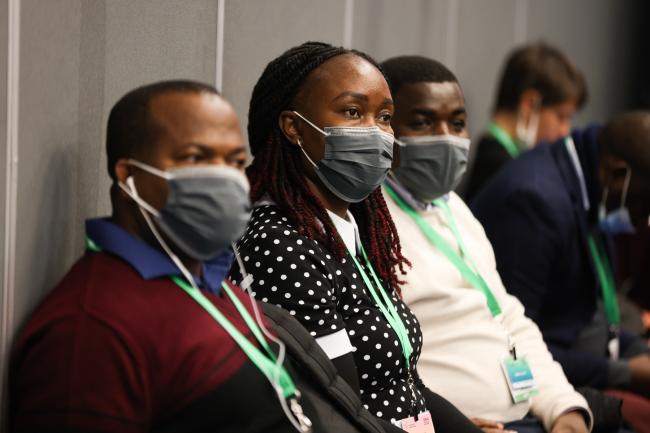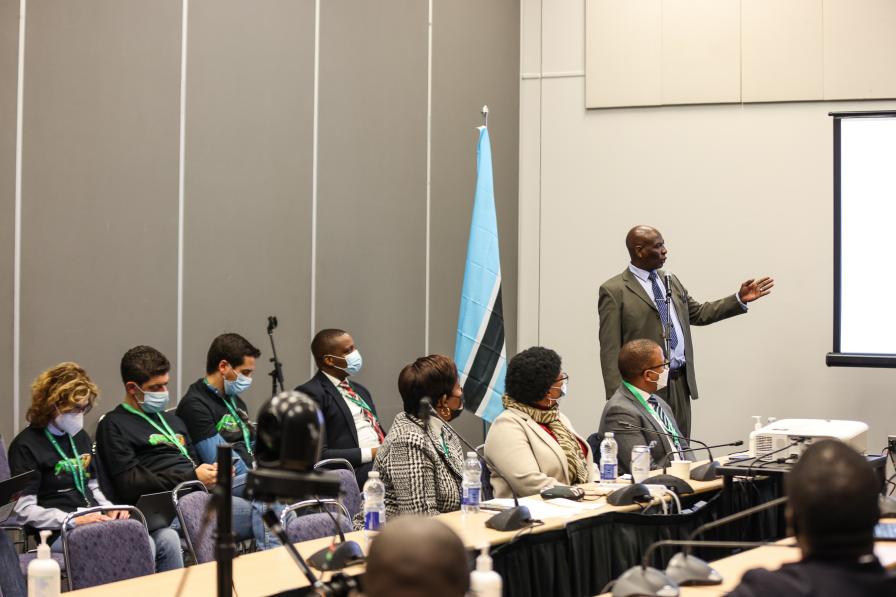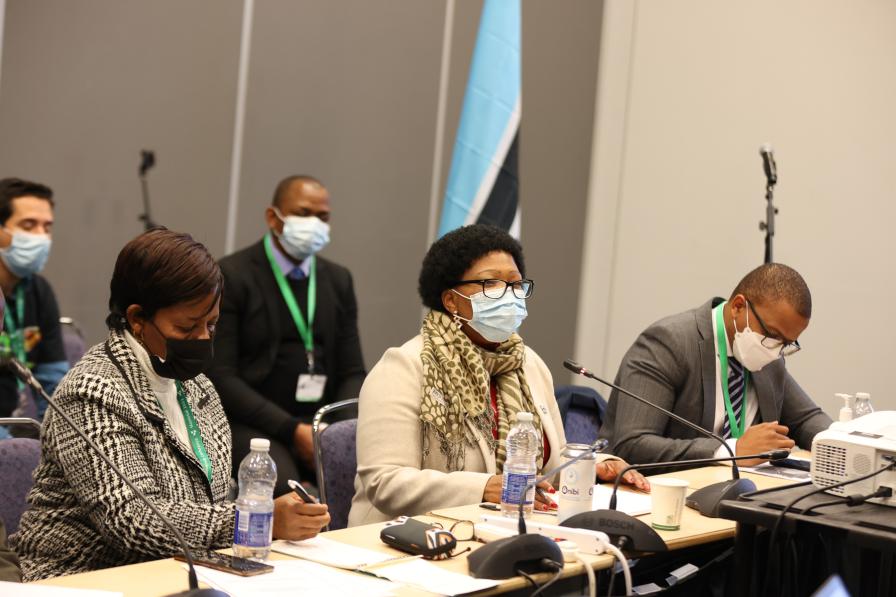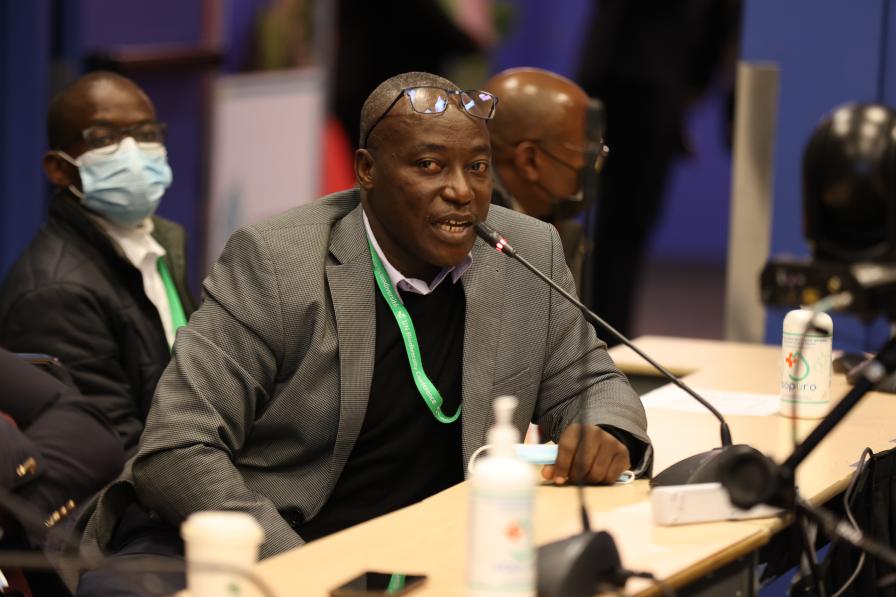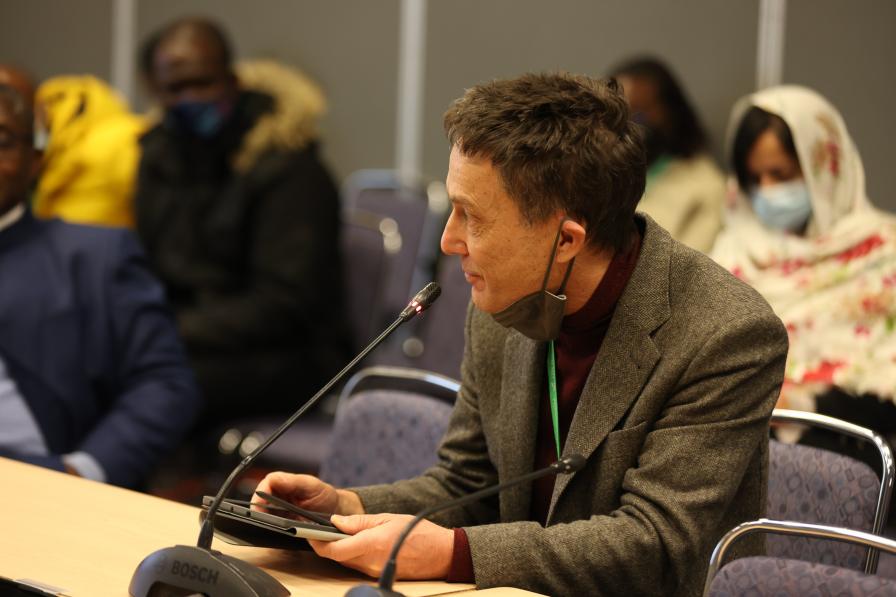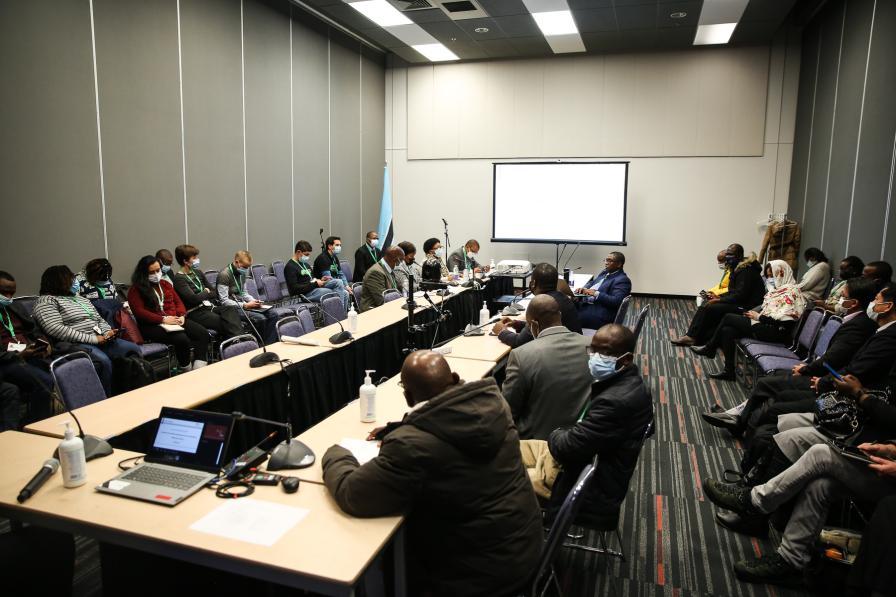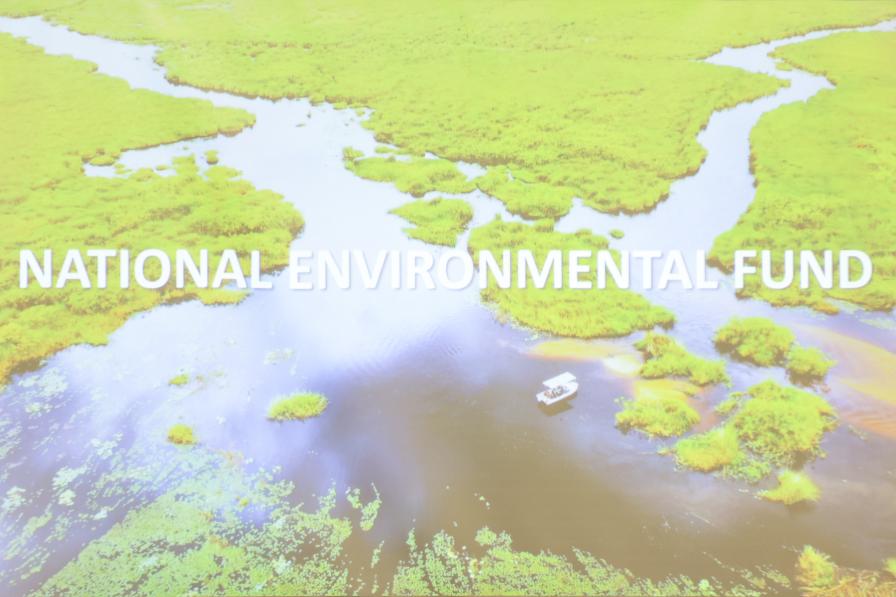About
The event addressed the role of stakeholders, including local communities and business, within the NEF, which provides long-term financing to maintain and enhance the Botswana's national environmental management agenda.
The National Environmental Fund (NEF) of Botswana, which was the focus of this side event, provides long-term financing for sustainable environmental and natural resource management, and aims to ensure access to financial resources to maintain and enhance the country’s national environmental management agenda. The event addressed the role of stakeholders, including local communities and business, within the NEF.
Opening the event, Alex Owusu-Biney, UN Environment Programme (UNEP), explained that hearing about domestic resource mobilization is a “breath of fresh air” and that other countries in Africa can learn from Botswana.
Speaking about the NEF, Philda Nani Kereng, Minister of Environment and Tourism, Botswana, stressed the government’s commitment to develop and deliver a national biodiversity plan through public financing. She underscored the people-centered nature of biodiversity, noting that revenue from diamond sales power natural resource preservation and conservation. She said the country has passed legislation and policies, which are consistently renewed to keep up with new developments. She explained that communities live with nature, which includes protected areas, such as around the Okavango Delta, underlining the importance of balancing human life and wildlife. She pointed to the fact that the community cares for nature, including through anti-poaching campaigns, and noted that these communities are assisted to continue living in these areas as they are key actors in preserving nature. Kereng highlighted that COVID-19 provided an opportunity to revise laws, including that businesses and projects must now comply with legislation related to environmental impact assessments (EIAs). She also noted that these policies drive economic development, with communities at the center, contrasting this with other countries that sometimes prioritize wildlife over people.
Presenting key messages, Kereng explained that Botswana developed the NEF to support civil society action in biodiversity management. She described the Fund’s management, and said the NEF derives its funding from taxes, levies imposed on plastic carrier bags, and revenue collected into a special environment fund. She also noted that, through the NEF, the country has supported 47 civil society-led projects with grants to pursue biodiversity management projects, to the tune of approximately CAD 3.9 million. Kereng noted that Botswana has always integrated environmental sustainability in its development agenda, having reserved 40% of its land cover as protected areas, and pointed to the country’s development of institutional and legislative mechanisms to sustainably support the biodiversity agenda. She said “biodiversity is the next diamond,” with the country recently passing access and benefit sharing legislation, which will inform planning and development policy.
Mokaedi Masedi, Habu Community Trust Leader, presented on a NEF-supported community project, the Habu Elephant Development Trust, which addresses human-wildlife conflict in the Okavango Delta. He noted the government’s democratic principles have led to collaboration between the community and the government to address biodiversity, land-use change, and climate change. He drew attention to a new community agreement to address land use for conservation, noting the NEF has funded activities related to human-wildlife conflict management, climate change adaptation, water provision, veld fire management, habitat restoration, and livelihood improvement.
Tshepo Tsheko, CEO, Botswana Innovation Hub, described his organization as the country’s national digital innovation hub, noting the Hub works to commercialize ideas around Botswana’s cultures, including traditional knowledge innovation. He drew attention to:
- the establishment of a Botswana SmartBots Lab to co-create homegrown solutions that address local challenges;
- a national technology transfer office to support intellectual property rights-related activities;
- the Hub’s facilitation of access to funding; and
- the Hub’s Traditional Knowledge Innovation (TKI) programme, which supports traditional healers through the development of a medicinal plant botanic garden, and has established a central location for a processing facility to produce charcoal from the invasive sexanana species.
He noted that “TK is bigger than diamonds,” stating the Hub coordinates a programme supporting traditional knowledge holders, including through community-based innovation labs.
Kelebaone Maselesele, Ministry of Environment, Botswana, stressed that her country is consistent in implementing the different initiatives, and reaffirmed the need for partnerships to better implement obligations under the Convention on Biological Diversity.
In the ensuing discussion, participants: queried the effectiveness of plastic levies collected to fund the NEF; called for more information on what percentage of EIA payments are directed to the NEF; inquired about the sustainability of NEF-funded projects; and requested clarification on the intellectual property associated with the traditional knowledge under the TKI programme.
Organizer: Government of Botswana
Contact: Kebaabetswe Keoagile | kebkeoagile@gmail.com
For more information: https://www.cbd.int/side-events/4471
Written and edited by Tallash Kantai, Vijay Kolinjivadi, PhD, and Deborah Davenport, PhD.
All ENB photos are free to use with attribution. For this event, please use: Photo by IISD/ENB | Natalia Mroz
To receive free coverage of global environmental events delivered to your inbox, subscribe to the ENB Update newsletter.
